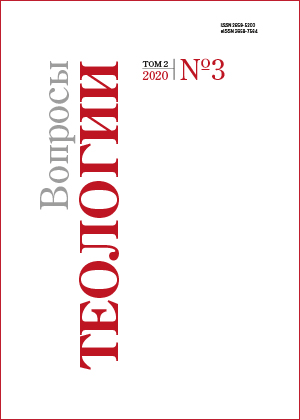Theological question in a philosophical perspective: Nikolai Berdyaev’s theory of a lie
DOI:
https://doi.org/10.21638/spbu28.2020.306Abstract
The article considers the conception of a lie established in the work of Nikolai Berdyaev during the first half of the 20th century. The socially organized lie was at the center Berdyaev’s attention. In the middle of the 20th century, new theoretical perceptions of necessity, legality and even value of a lie emerge. A lie is declared to be a norm of European culture, an inevitable component of economic, political and scientific practice, an essential component of people’s ordinary and family life. Criticizing these ideas, Berdyaev puts forward a number of counterarguments relevant both during his time and at the beginning of the 21st century, which makes this article significant. The fundamental originality of the study of a lie by the Russian philosopher consists in changing the main cause of the phenomenon, from the personal moral and psychological characteristics of a person to the ontological cause. Berdyaev creates a philosophical-religious theory of “Tragic theodicy”, where he links the origin of the free will of a person (including the freedom to lie) with the peculiarities of the origin of Space from two sources. These sources are the will of God and from voluntary consent to become the existence of some primordium — “Meon (abyss)”, “Abyss”, “Baselessness”: human free will is not a gift from God. A person’s freedom to act comes before the act itself, its roots are in Meon. For this reason, it is impossible to make God responsible for cosmic disasters and for the irrational destructive behavior of man. God is all-merciful, but not almighty, and He cannot prevent the negative consequences of a person’s free will. A lie on a worldwide scale is “a lie of the world”, which produces horrendous consequences and creates “a false existence”, it is related to Meon and it is produced by people. The article is intended to attract the attention of the scientific community to the creative heritage of Nikolai Berdyaev.
Keywords:
Meon, Abyss, a false existence, a lie of the world, a social lie, a conditional lie, courtesy, a virtuous lie, Truth, Faith, Gospel, Saint Augustine, Immanuel Kant, Nikolai Berdyaev
Downloads
References
References
Downloads
Published
Issue
Section
License
Articles of "Issues of Theology" are open access distributed under the terms of the License Agreement with Saint Petersburg State University, which permits to the authors unrestricted distribution and self-archiving free of charge.




